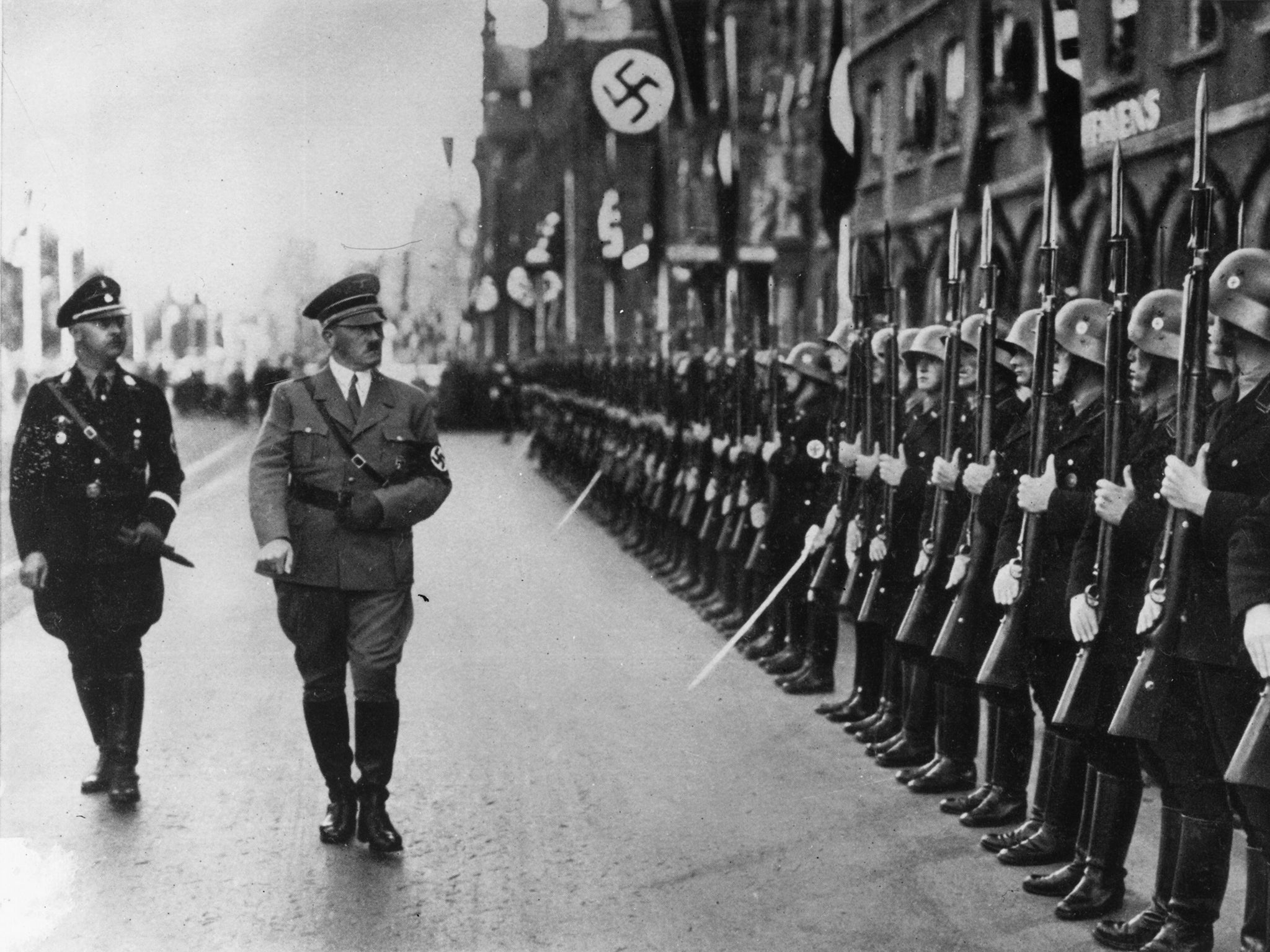Best for Britain chief campaigning for second referendum compares Brexit to appeasement of Nazi Germany
Comments come after George Soros announces campaign for second referendum
Your support helps us to tell the story
From reproductive rights to climate change to Big Tech, The Independent is on the ground when the story is developing. Whether it's investigating the financials of Elon Musk's pro-Trump PAC or producing our latest documentary, 'The A Word', which shines a light on the American women fighting for reproductive rights, we know how important it is to parse out the facts from the messaging.
At such a critical moment in US history, we need reporters on the ground. Your donation allows us to keep sending journalists to speak to both sides of the story.
The Independent is trusted by Americans across the entire political spectrum. And unlike many other quality news outlets, we choose not to lock Americans out of our reporting and analysis with paywalls. We believe quality journalism should be available to everyone, paid for by those who can afford it.
Your support makes all the difference.Brexit has been compared to the appeasement of Nazi Germany in the 1930s by a leading supporter of the Remain campaign.
Lord Malloch-Brown, the former foreign office minister who heads the Best for Britain group, made the comments after billionaire George Soros announced a campaign for a second Brexit referendum.
Mr Soros, who is reported to have given about £500,000 to the group set up by anti-Brexit campaigner Gina Miller last year, said action was needed as withdrawal from the European Union was “immensely damaging” for the UK.
Lord Malloch-Brown said Britain needed to stay close to the EU because appeasement, which was a 1930s government policy of pursuing agreement with Nazi Germany in the hope of avoiding war, showed how badly things could go wrong when the UK tried to isolate itself from the continent.
He told BBC Radio 4’s Today programme: “Britain’s history as an island nation adjacent to mainland Europe is when we try to, sort of, pull away from Europe’s problems and close ourselves off to them; they have a horrible habit of infecting us anyway.
“Appeasement in the 1930s, you name it. For centuries Britain has ignored events on continental Europe at its peril.”
He said Mr Soros’s reputation as the “man who broke the Bank of England” in 1992, when the financier bet against sterling on the money markets, was an “unrelated issue” to the anti-Brexit campaign.
“He broke the Bank of England as a financier because the British pound was overextended. It wasn’t credible. He broke the pound, not the Bank of England, I should say.
“He is someone who has devoted decades to an extraordinary global philanthropy which has fought for democracy and open values.”
Best for Britain, which campaigns to keep the UK open to EU membership, is expected to publish its manifesto calling for a second referendum on 8 June.
Announcing the campaign in Paris, Mr Soros, 87, said: “Brexit is an immensely damaging process, harmful to both sides.
“Divorce will be a long process, probably taking more than five years. Five years is an eternity in politics, especially in revolutionary times like the present.
“Ultimately, it’s up to the British people to decide what they want to do. It would be better, however, if they came to a decision sooner rather than later. That’s the goal of an initiative called the Best for Britain, which I support.
“Best for Britain fought for, and helped to win, a meaningful parliamentary vote which includes the option of not leaving at all. This would be good for Britain but would also render Europe a great service by rescinding Brexit and not creating a hard-to-fill hole in the European budget.
“But the British public must express its support by a convincing margin in order to be taken seriously by Europe. That’s what Best for Britain is aiming for by engaging the electorate. It will publish its manifesto in the next few days.”
He said he feared the EU could be heading towards another major financial crisis triggered by austerity and populist political parties intent on tearing the bloc apart.
“The EU is in an existential crisis. Everything that could go wrong has gone wrong,” he said.
However, Mr Soros said he was convinced it was the ideal time for the EU to reform itself and prepare the ground for the UK staying inside the bloc.

“The economic case for remaining a member of the EU is strong, but it will take time for it to sink in,” he added.
“During that time the EU needs to transform itself into an association that countries like Britain would want to join, in order to strengthen the political case.
“Such a Europe would differ from the current arrangements in two key respects. First, it would clearly distinguish between the European Union and the eurozone.
“Second, it would recognise that the euro has many unresolved problems and they must not be allowed to destroy the European Union.”
Theresa May is committed to leaving the EU’s single market and customs union after Brexit, which will officially take place on 29 March next year.
However, a transition period is currently set to last until 31 December 2020.
Additional reporting by Press Association

Join our commenting forum
Join thought-provoking conversations, follow other Independent readers and see their replies
Comments